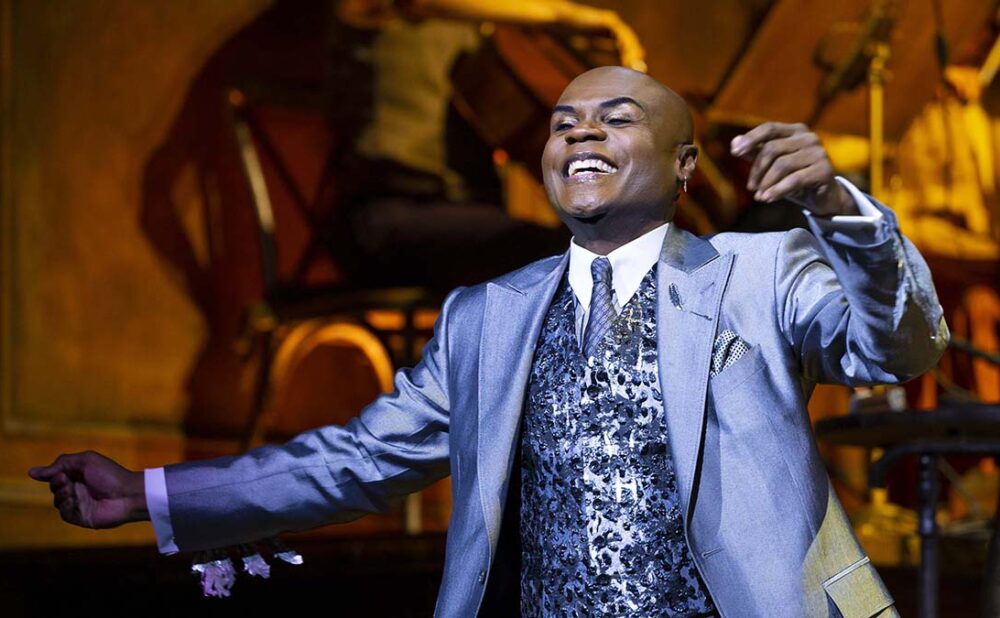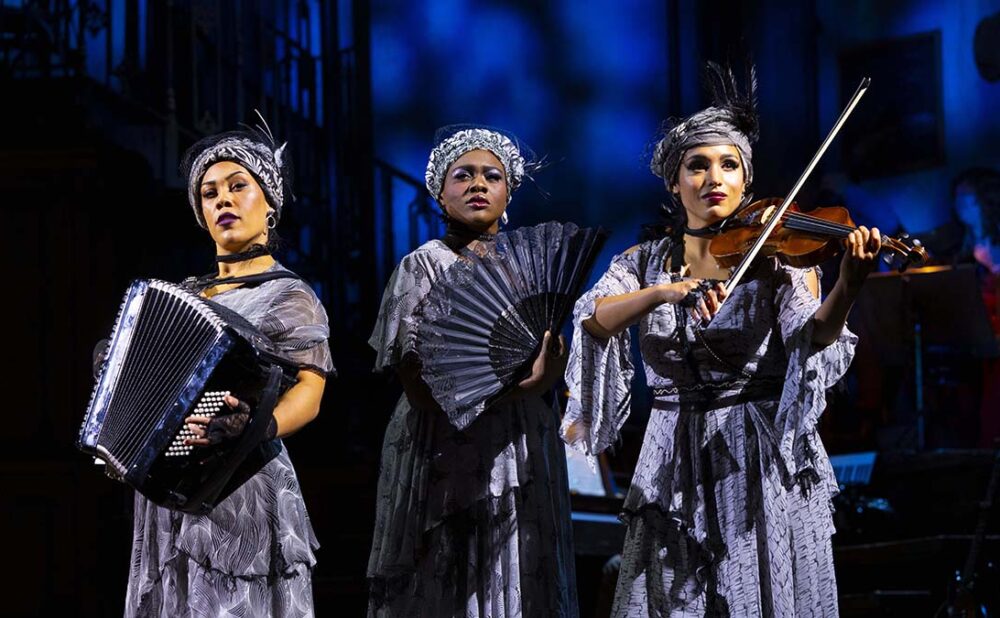Mirvish ‘Hadestown’ is surprisingly serene
Hit musical pitches summer tent at the Royal Alex
What: Hadestown
Where: Royal Alexandra Theatre, 260 King St. W.
When: Now, until Sun., Aug. 20
Highlight: Anaïs Mitchell’s complex, genre-hopping score
Rating: NNNN (out of 5)
Why you should go: It’s the Tony-winning musical’s first time in Toronto, and Rachel Chavkin’s acclaimed original staging lives up to the hype.
Most visions of Hell incinerate. Fires blaze endlessly, punishing sinners with their deadly heat. So, you might expect that Mirvish’s touring engagement of Anaïs Mitchell’s hit musical Hadestown would match the scorching temperatures out on King Street.
But it turns out this version of the show is more spring than summer. Its picture of doe-eyed love navigating tyrannical darkness goes down easy, with the tranquility of an anecdote told at a streamside picnic. It doesn’t wholly engulf — but it always pleases.
The show, adapted from Mitchell’s 2010 album of the same name, mixes the stories of two mythological couples. The first, Orpheus (Jordan Bollwerk at the performance I saw) and Eurydice (Hannah Whitley), are young romantics; the second, a tensely married Hades (Matthew Patrick Quinn) and Persephone (Maria-Christina Oliveras), rule the underworld.
Similar to how great films based on short stories shade the space between the lines of the original, Hadestown unpacks the political, philosophical and psychological subtext lying beneath well-known myths. The idea isn’t to blast through the story but to slow down and interrogate why they’re being told in the first place — to consider what it is about these intersecting tales of love and dominion that continues to enamour us.
Mitchell’s complex score pivots genre with intention. As it jumps from Sondheimian musical theatre to soulful bluegrass to rhythmically experimental jazz, it underlines the timelessness of myth — that these stories have been told all over the world, across time, in almost every musical and linguistic idiom.
Although I saw an understudy play the difficult leading role of Orpheus, the cast nailed the music, drawing on dynamics to plunder its riches. The ensemble’s harmonies are shimmering walls of sound; they gorgeously support many key solos and keep things moving. And musical director Eric Kang — along with trombonist Emily Fredrickson, who ably dishes out the show’s iconic opening riff — nimbly leads the band through the show’s many musical shifts.
Rachel Chavkin’s acclaimed staging is extremely busy. When not in a scene, actors often lurk in the background next to the band. Add to this a rustic multi-level set by Rachel Hauck and lavish, wildly variant costumes and there’s always something to look at. Having that much visual information is dangerous — it occasionally threatens to undermine the narrative’s intimacy — but Bradley King’s extraordinarily textured lighting design is expert at showing the audience where to look, so this obstacle is generally bypassed.
Chavkin also attempts to break down the barrier between performer and audience by having the actors wave when they enter at the top of both acts. I appreciate the intention behind this move, but this touring production doesn’t really carry that playful immediacy through the rest of the show. At times, it becomes a victim of its own slickness and feels just a touch over-polished.
But it’s still immensely rewarding to see the last real pre-pandemic Broadway hit on a Toronto stage. Some of it feels lighter than expected, but the score remains glorious and the climactic moments shake Earth.







